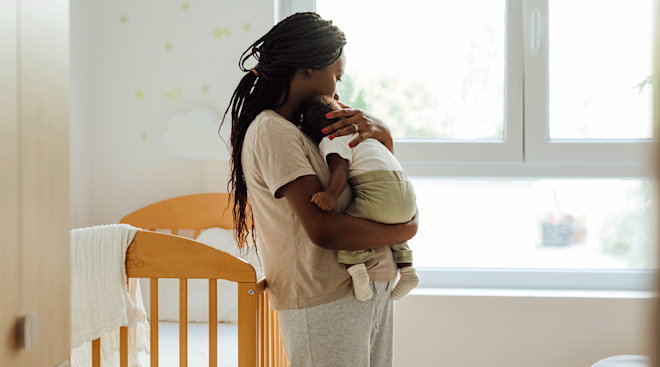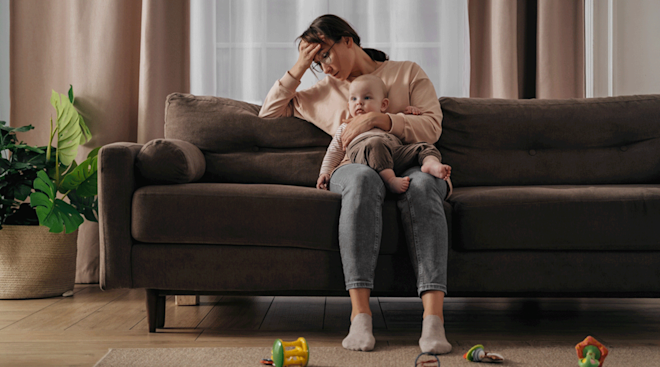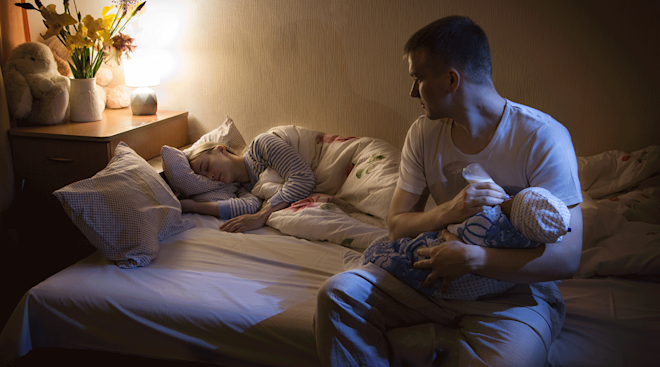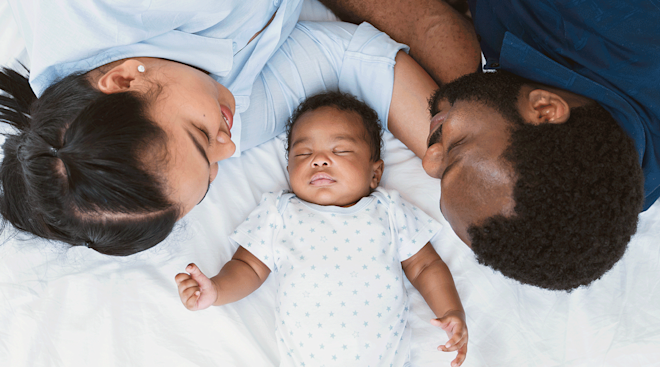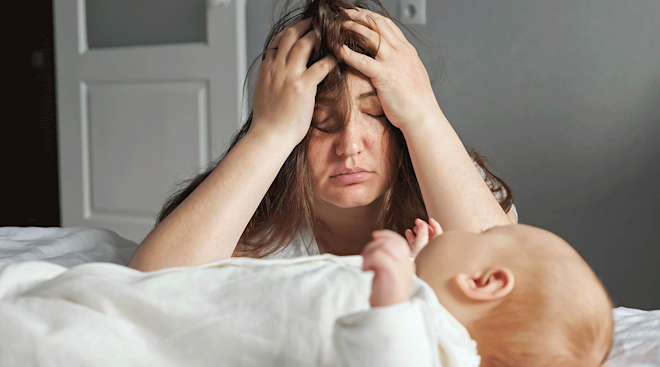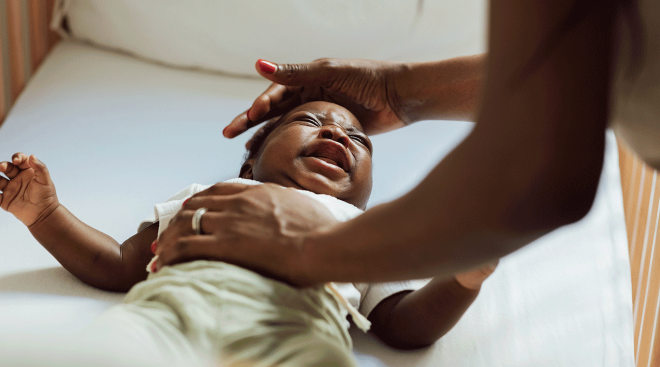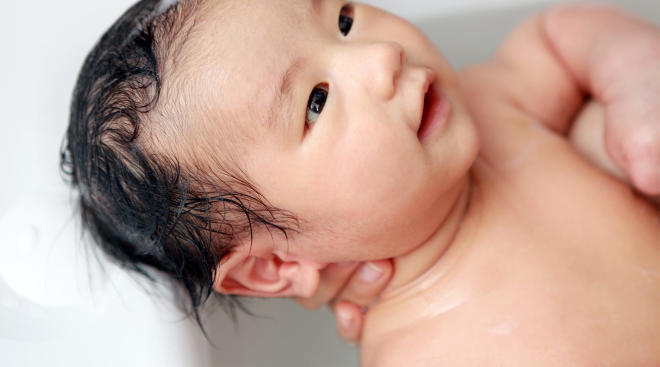Baby Sleep Myths—Busted
The first myth we should be busting about baby sleep? That there’s a magic sleep solution that applies to all babies. Still, there’s a few rumors about baby sleep and sleep safety that need to be put to bed, so to speak. And we got to the bottom of them.
The truth: You’ve probably heard this one a thousand times already, but don’t believe it. In the first few weeks, your baby needs to eat every two to three hours. So there may be times when you will have to gently nudge them awake for a feeding, says Tanya Remer Altmann, MD, author of Mommy Calls. In fact, the American Academy of Pediatrics (AAP) lists several methods to wake a newborn if you need to:
- Talking, singing, and gentle stimulation
- Dressing down
- Going through the motions of diapering
- Bathing
Once a breastfeeding baby is eating 8 to 12 times a day and a bottle-feeding baby is eating 5 to 8 times a day, you probably won’t need to wake them up to feed.
The truth: Crib bumpers may seem like they’ll protect baby from bumps and bruises, but they can actually be dangerous since they (just like any other puffy bedding like comforters, pillows and sleep positioners) pose a suffocation risk. The AAP has actually advised against bumpers since 2011 and they were banned in May 2022. “I’ve never seen a baby who’s seriously injured their head banging it on the side of the crib,” say Altmann. “But babies have rolled and gotten tangled in bumpers.” So keep the bumper—and anything else besides a fitted crib sheet and baby—out of the crib.
The truth: Sure, you may need complete silence to fall (and stay) asleep, but most newborns actually love background noise with a shushing sound, like that of a fan. “It can be comforting and familiar, since they heard constant, loud noise 24/7 when they were in utero,” says Altmann. (Yep, it was pretty noisy inside your belly!) If you’re having trouble calming baby down or getting them to stay asleep, consider trying a white noise machine or soothing device to help them sleep.
The truth: “There’s a huge range for when babies sleep through the night,” says Kira Ryan, cofounder of Dream Team Baby, a baby sleep consultancy, and coauthor of the book The Dream Sleeper: A Three-Part Plan for Getting Your Baby to Love Sleep. “It could be anywhere from 4 weeks to 4 months, but usually around 4 months, sleep starts to consolidate.” While every baby is different, it’s not usually until 9 months that babies can log 9 to 12 hours of sleep without eating.
The truth: This almost always backfires. Here’s why: Keeping babies up late at night will make them overtired, making them more resistant to going down for the night. To get baby to sleep later the next morning, you’ll actually have better luck making bedtime earlier. “Trust me and try it,” says Altmann. “Put your kid to sleep 30 minutes earlier than usual. They will begin sleeping a bit later in the morning.”
The truth: The AAP recommends never leaving baby alone with a pet—and that includes allowing the pet to sleep in a child’s room. The reason: About 600,000 children are bitten by dogs every year, badly enough to need medical attention. Even a playful cat can jump into a newborn’s bassinet or crib and scratch.
The truth: There’s actually no evidence that adding cereal to baby’s bedtime bottle will help them sleep longer, so there’s no point in doing it. In fact, cereal in a bottle increases the number of calories baby consumes, and some studies show that feeding baby solid foods before 4 months can contribute to obesity. The AAP recommends waiting to introduce solid foods until baby is 4 to 6 months old, and to always spoon-feed solids, since baby could choke on them if they’re dispensed through a bottle.
Plus more from The Bump:
Please note: The Bump and the materials and information it contains are not intended to, and do not constitute, medical or other health advice or diagnosis and should not be used as such. You should always consult with a qualified physician or health professional about your specific circumstances.
Navigate forward to interact with the calendar and select a date. Press the question mark key to get the keyboard shortcuts for changing dates.

































